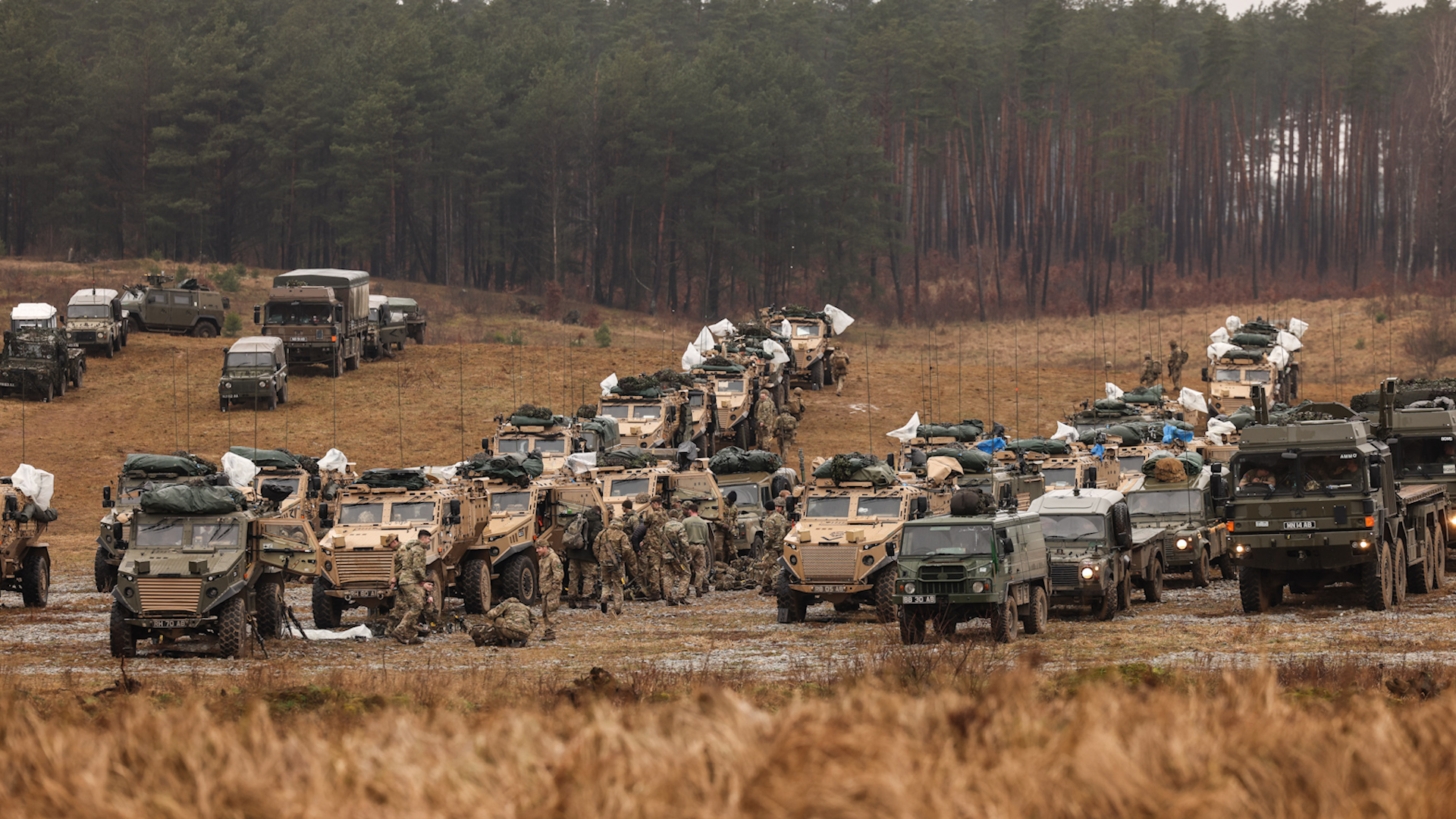
UK urges allies to adopt 2.5% defence spending commitment to add £140bn to Nato budget

Rishi Sunak is urging the UK's Nato allies to align themselves with his pledge to allocate 2.5% of their gross domestic product to defence.
The Prime Minister's commitment entails a substantial increase in defence spending, surpassing £75bn over the next six years, with the aim of achieving the 2.5% target by 2030.
The current Nato target for defence spending is 2% – although only 11 members of the alliance met that goal in 2023.
- UK announces 2.5% GDP spending on defence, biggest strengthening for a generation
- UK pledges record £500m in Ukrainian aid as PM warns Putin won't stop
- Nato: Which countries are paying their fair share on defence?
Increasing that benchmark to 2.5% would add £140bn to the Nato budget if it was met by all 32 members.
Mr Sunak and Defence Secretary Grant Shapps will urge all members of the alliance to match the UK's increased commitment at the upcoming Nato 75th anniversary summit in Washington DC.
Funding for this commitment in the UK will involve cutting 72,000 civil service positions, a move that economists caution will necessitate significant reductions in other public spending sectors as well.
"That actually will take the Civil Service back to where it was before Covid, so I think that is a very reasonable thing to do," Defence Secretary Mr Shapps told Times Radio.
"We're simply saying that defence of the realm is the absolute number one priority, it comes before everything else, and if we don't defend the nation then everything else becomes slightly less of an issue.
"We're now saying we think that should be 2.5%. We think in a more dangerous world that would make sense."
Nato's 2% target was set 10 years ago when, as Mr Shapps pointed out, "we didn't have the significant rise of China, North Korea - now nuclear-armed - Iran attacking and using its proxies to attack, and a very much less stable world given Russia's full-scale invasion of Ukraine".
The Institute for Fiscal Studies (IFS) said unprotected areas of public spending would now face cuts of around 4% a year after 2025 to help meet the defence commitment.
"For decades, steady reductions in the amount spent on defence allowed for extra spending on things like the NHS without a need to increase taxes," said IFS economist Ben Zaranko.
"In essence, we replaced a warfare state with a welfare state. The challenge now is that we're going to have to pay for both."









